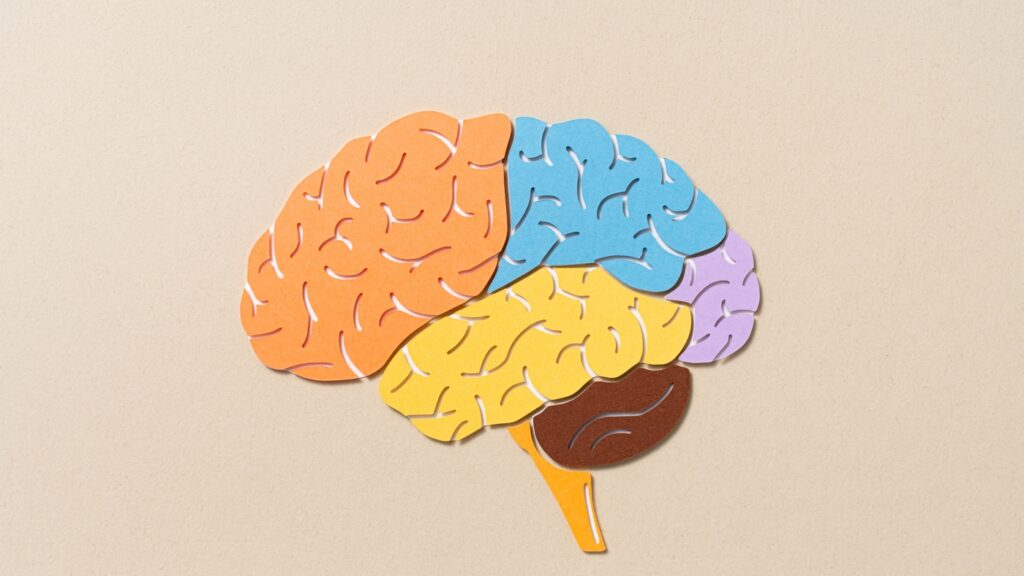ROB SCHMITZ, HOST:
One key to healthy aging is to keep your mind sharp. Turns out there are daily habits and ways of living that can reduce the likelihood of developing dementia. NPR’s Allison Aubrey shares a new tool to help you prioritize the healthy behaviors that matter most.
ALLISON AUBREY, BYLINE: In all his years as a doctor, the question that Dr. Jonathan Rosand says he gets over and over again is this.
JONATHAN ROSAND: Doctor, what can I do to take good care of my brain so that I don’t develop dementia like my father or brother or sister?
AUBREY: Dr. Rosand is a neurologist in Massachusetts General Hospital. He and his collaborators have developed a 21-point ranking. It’s called the brain care score. It takes about five minutes to complete. It helps people connect the dots between their daily habits, such as diet, exercise and sleep, with their risk of stroke and dementia. For Ruth Bernstein, the information has been illuminating. She watched her grandmother’s decline from Alzheimer’s, and now her mom has the disease, too.
RUTH BERNSTEIN: We just watched my grandma be robbed of her identity and what it does to your personality and your memories. And it’s truly devastating.
AUBREY: As the mom of two kids – including a teenager – Bernstein was worried about her own risk. She knows that genes play a role. But now she knows there are many things she can do to help lower her risk.
BERNSTEIN: Connecting those dots to my brain was super, super helpful.
AUBREY: A Lancet commission report concludes about 40% of dementia cases could be potentially prevented or delayed by addressing 14 risk factors. And Dr. Rosand says this creates an opportunity.
ROSAND: You can substantially reduce your risk through the lifestyle choices you make. So all of us have a fair amount of control.
AUBREY: If you want to calculate your brain care score, you fill out a questionnaire. You’re asked about diet, alcohol consumption, smoking, the amount of exercise you get, as well as social-emotional factors, such as your sense of purpose and social connections.
ROSAND: Most of these risk factors are well known, but they’ve never been presented in such a way that they’re easy for us as individuals to act on.
AUBREY: Several published studies show that a high brain care score is linked to significantly lower risks of disease. Dr. Kevin Sheth is the director of the Center for Brain & Mind Health at Yale University. He co-authored one of the studies. It found a 5-point increase in the brain care score was associated with a 27% lower composite risk of dementia, stroke and late-life depression.
KEVIN SHETH: What was surprising to us was just how powerful it was. To have an effect on that order of magnitude is quite large.
AUBREY: Sheth told me all the research behind the brain care score has made an impact on his own habits.
SHETH: I’m motivated ’cause I know the data, and I started thinking about, you know, jeez, are there easy ways in which I can just make sure to have green leafy vegetables and trying to eat the right kind of fats? – things like that.
AUBREY: Ruth Bernstein says she’s making lots of tweaks to her lifestyle, including scaling back on alcohol.
BERNSTEIN: I was at an event for my son’s soccer team, and, you know, there’s a bar, and you’ve had one glass of wine, and someone says, do you want another? No, I’m thinking of my brain care score (laughter). Have I been sitting too long at my desk? Have I gotten my steps?
AUBREY: She says she was definitely aware of all these healthy habits before, but knowing that her choices could help prevent dementia…
BERNSTEIN: It’s really motivated me because I understand how it can all add up.
AUBREY: Dr. Jonathan Rosand says he’d like to see the brain care score incorporated into preventive medicine, say, at an annual physical. The sooner people focus on lifestyle, the more powerful the effects can be.
Allison Aubrey, NPR News.
Copyright © 2024 NPR. All rights reserved. Visit our website terms of use and permissions pages at www.npr.org for further information.
NPR transcripts are created on a rush deadline by an NPR contractor. This text may not be in its final form and may be updated or revised in the future. Accuracy and availability may vary. The authoritative record of NPR’s programming is the audio record.

